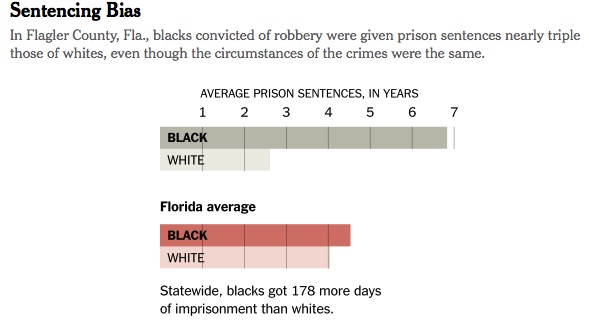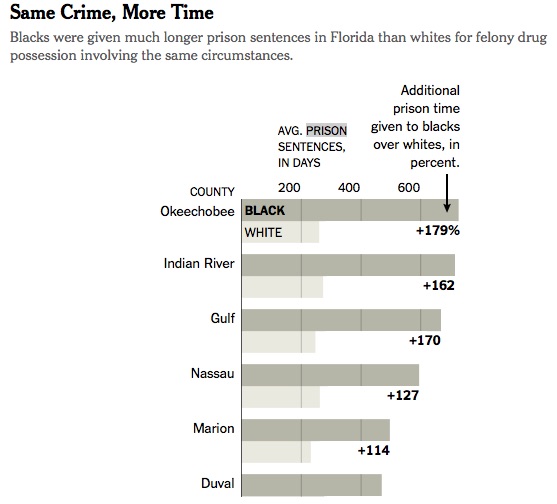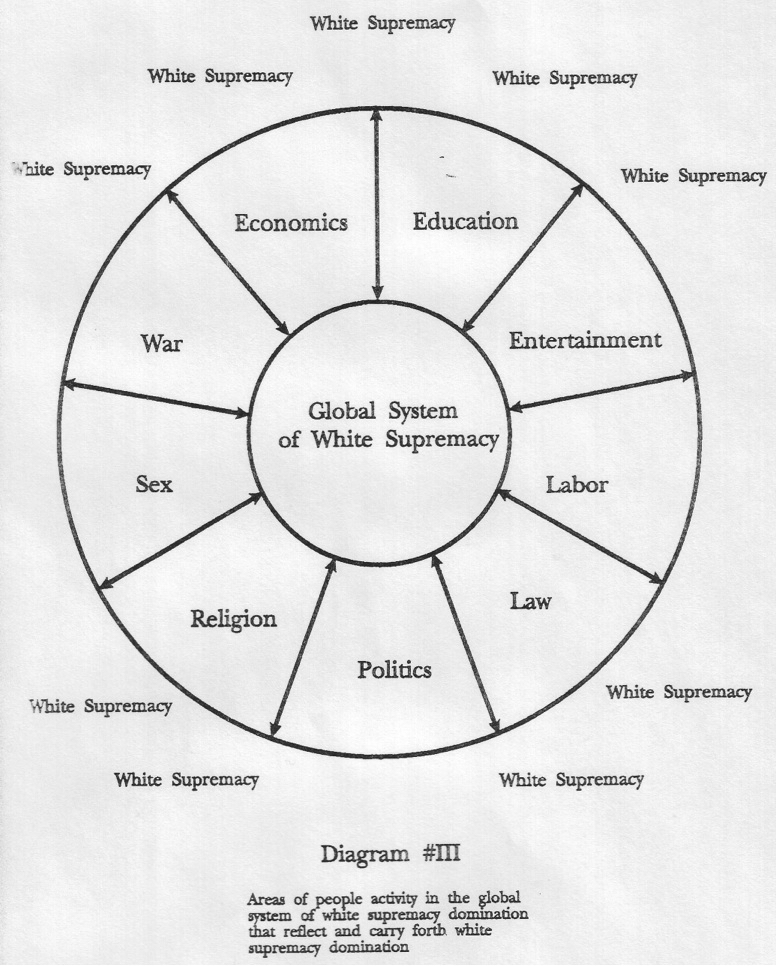new study: Same Crime, Same Criminal History as Whites But Harsher Sentences for Blacks in System of White Supremacy

From [NY Times] Decades of research have shown that the criminal courts sentence black defendants more harshly than whites. But a striking new investigation of sentencing disparities in Florida by The Sarasota Herald-Tribune expands our understanding of this problem in two important ways.
It exposes the fact that African-American defendants get more time behind bars — sometimes twice the prison terms of whites with identical criminal histories — when they commit the same crimes under identical circumstances. It also shows how bias on the part of individual judges and prosecutors drives sentencing inequity.
The Florida Legislature has been wrestling with this issue for decades. In the 1980s, for example, it tried to change sentencing policies that varied widely from place to place by creating sentencing guidelines. Today, prosecutors assign defendants points — based on the seriousness of their crime, the circumstances of their arrest and whether or not they have prior convictions — to determine the minimum sentence required by law.
In a fair system, black and white defendants who score the same number of points under this formula would spend the same time beyond bars. But The Herald-Tribune found that judges disregard the guidelines, sentencing black defendants to longer prison terms in 60 percent of felony cases, 68 percent of serious, first-degree crimes and 45 percent of burglaries. In third-degree felony cases — the least serious and broadest class of felonies — white Florida judges sentenced black defendants to 20 percent more prison time than white defendants.

The war on drugs weighs particularly heavily on black defendants. The police target their neighborhoods, herding people into a court system where judges are demonstrably harder on black offenders. The report found that nearly half of the counties in Florida sentenced African-Americans convicted of felony drug possession to more than double the jail time of whites — even when their backgrounds were the same.
Prosecutors and defense lawyers have come to accept this racist system as a fact of life. The Herald-Tribune cited two teenagers who were charged with armed robbery in the same county. Prosecutors and the defense lawyer, with the approval of one judge, ignored the sentencing guidelines for the white teenager and struck a plea agreement for probation with no jail time. The black teenager was sentenced to four years, as recommended under the guidelines, and was told by his lawyer that it was the best deal he could get.
The Florida system is inflicting a form of racial persecution that is strongly reminiscent of the Jim Crow era. The state’s sentencing structure is obviously in need of reform. Part of the solution may be for the courts to issue regular public reports detailing the sentencing decisions of individual judges and showing how they relate to guidelines. That would throw a spotlight on what is clearly a festering injustice.
